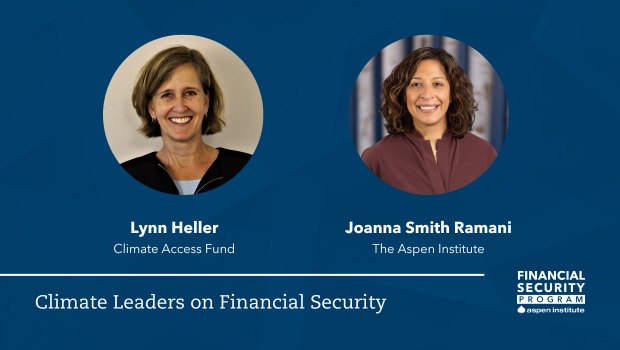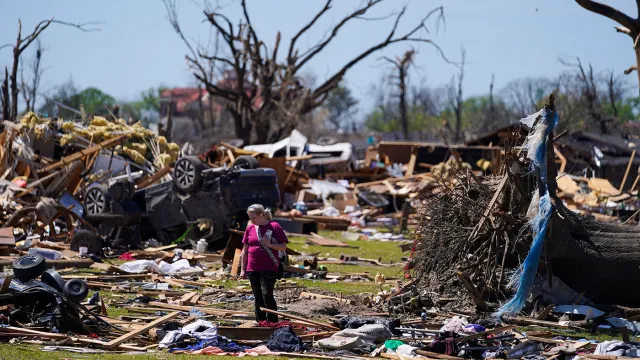Climate x Financial Security
Climate change is an existential threat to our daily lives, with 78 percent of U.S. adults reporting that they have been personally affected by at least one extreme weather event in the past five years. As natural disasters and atypical weather become more commonplace, so too does the financial fallout associated with the sudden loss of a home, vehicle, business, job or even a loved one. Yet few households have the necessary financial buffer to recover from such a crisis. Just 45 percent of U.S. households have the savings needed to endure a simultaneous income loss and expense spike, much less the resources to rebuild, relocate, or undertake many of the other astronomically expensive tasks required to rebound from a natural disaster or stressor brought on by climate change. Without new strategies to support households, it will be much harder to achieve the ambitious North Star goal the Aspen Institute Financial Program (Aspen FSP) has set for this country: By 2050, we must increase by tenfold the wealth of households of color and those in the bottom half of the wealth distribution in the United States.
As we learn more about both climate change and household financial insecurity, the ways in which the two overlap become more apparent. Consider:
- Nearly a third of the nation’s housing stock is “exposed to high risk from natural disasters,” threatening most families’ primary source of wealth.
- Workers in “temperature-exposed” industries, such as agriculture and construction, lose as much as $80 billion annually in wages to time spent avoiding extreme heat.
- The racial wealth gap widens in communities recovering from natural disasters, with one study documenting an increase in household wealth in counties with significant damage of more than $100,000 on average for white families as compared to a loss of nearly $30,000 on average for Black and Latinx families.
In recognition of the fact that climate change will increasingly undermine household financial security, Aspen FSP is bringing together thought leaders and practitioners from the two sectors to learn from one another, identify shared goals and opportunities for collaboration, and brainstorm potential solutions. Aspen FSP is also conducting research to develop a new framework for understanding household financial security in the context of the new realities and constraints of climate change. In doing so, we seek to further refine how we think about and respond to the existing and emerging threats to financial stability facing everyday families, and also to craft a cross-sector agenda to more effectively promote household financial security and mitigate the challenges presented by our warming planet.






